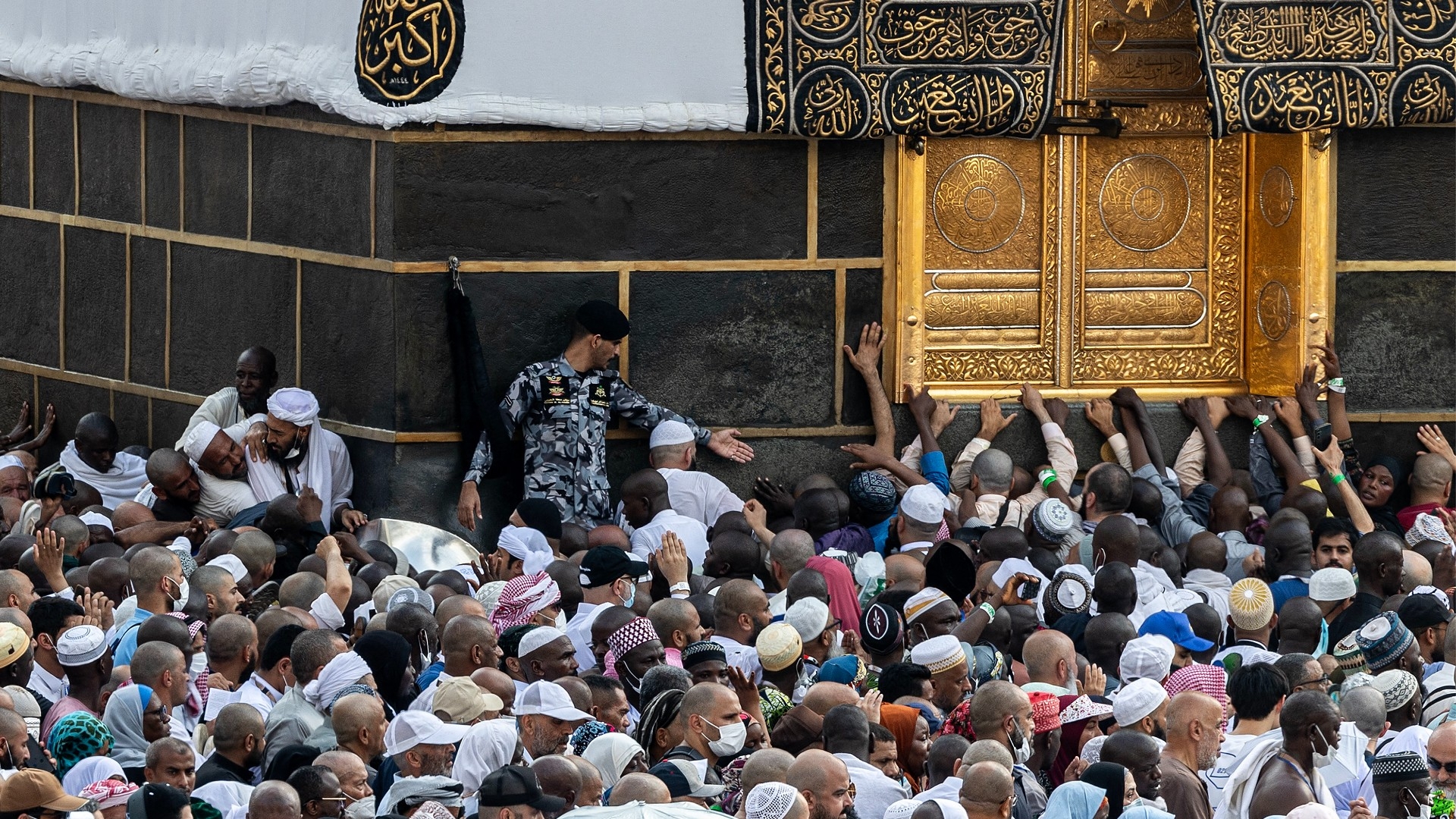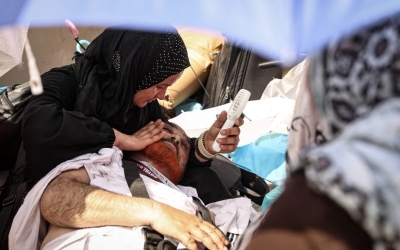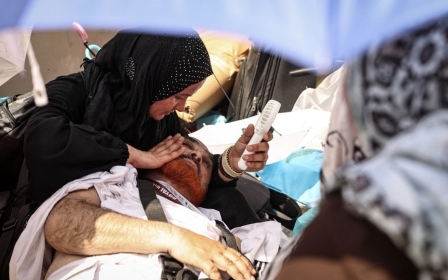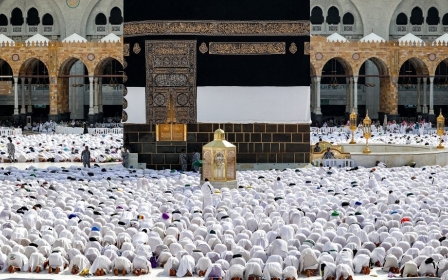Saudi Arabia suspends Egyptians from booking Umrah directly

Saudi Arabia has suspended B2C e-visas for Egyptians to perform the pilgrimage of Umrah, following the death due to extreme heat of over 1,300 people during Hajj.
The B2C allows Umrah pilgrims to travel independently of a tour operator.
The deaths constituted the worst heat-related Hajj disaster in 40 years, as temperatures reached 51.8C.
According to Saudi authorities, 83 percent of those who died were unauthorised to perform Hajj, and therefore walked long distances under direct sunlight without adequate shelter.
At least 658 of those who died were Egyptian, of whom 630 were unregistered pilgrims, according to an Egyptian diplomat cited by AFP.
New MEE newsletter: Jerusalem Dispatch
Sign up to get the latest insights and analysis on Israel-Palestine, alongside Turkey Unpacked and other MEE newsletters
Basil al-Sisi, from the Egyptian travel agents' association, announced over the weekend that one category of Umrah visas - a smaller pilgrimage that can be performed any time of the year - had been suspended.
Sisi told Al-Masry al-Youm that the B2C visa, which Egyptians could previously use to directly book packages via Saudi Arabia's online Umrah portal, had been paused.
He said that this did not mean that Egyptians couldn't perform Umrah, as they can still book using an official travel agent in Egypt.
Sisi said the pause was driven by the deaths at Hajj this month.
"B2C visa allows its holder to enter the system, obtain the visa, and travel without a trip organiser, which is unacceptable after the Hajj crisis," he said.
Sisi said earlier this week that the B2C Umrah visa suspension was a temporary measure.
Obligation to protect pilgrims
Following the Hajj deaths, Egyptian Prime Minister Mostafa Madbouly announced that 16 tourism companies had their licences rescinded for allegedly authorising people to perform Hajj through irregular channels.
On Tuesday, Human Rights Watch said Saudi authorities had an obligation to protect people from extreme heat.

"Beyond Hajj, they should implement heat protection measures to better safeguard the health of all those at risk. This is especially urgent given Saudi Arabia's plans under Vision 2030, which includes increasing the annual number of religious pilgrims to 30 million from 8 million," HRW said.
On Tuesday, Middle East Eye reported that Saudi authorities had detained an Egyptian man after he posted an online video during Hajj criticising the alleged neglect that led to the deaths of hundreds of Egyptian pilgrims.
According to a video posted online by his father, Islam Osama Sobhi, 27, is being held in custody in Taif, after the Egyptian consulate in Jeddah surrendered him to the Saudi security services for investigation.
MEE reported earlier this week that both registered and unregistered pilgrims suffered from inadequate facilities during Hajj, including being refused entry to buses and ambulances.
A Saudi security source told MEE that the actual death toll this year might be three to four times higher than reported, and that no official comment would be made on these numbers unless the deaths were due to an accident.
Around 1.8 million pilgrims performed Hajj this year, of whom 1.6 million came from abroad, according to Saudi authorities.
The annual pilgrimage, which is one of the five pillars of Islam, is increasingly being affected by climate change. A recent Saudi study found that temperatures in areas where Hajj rituals are performed are rising by 0.4C each decade.
Middle East Eye delivers independent and unrivalled coverage and analysis of the Middle East, North Africa and beyond. To learn more about republishing this content and the associated fees, please fill out this form. More about MEE can be found here.




